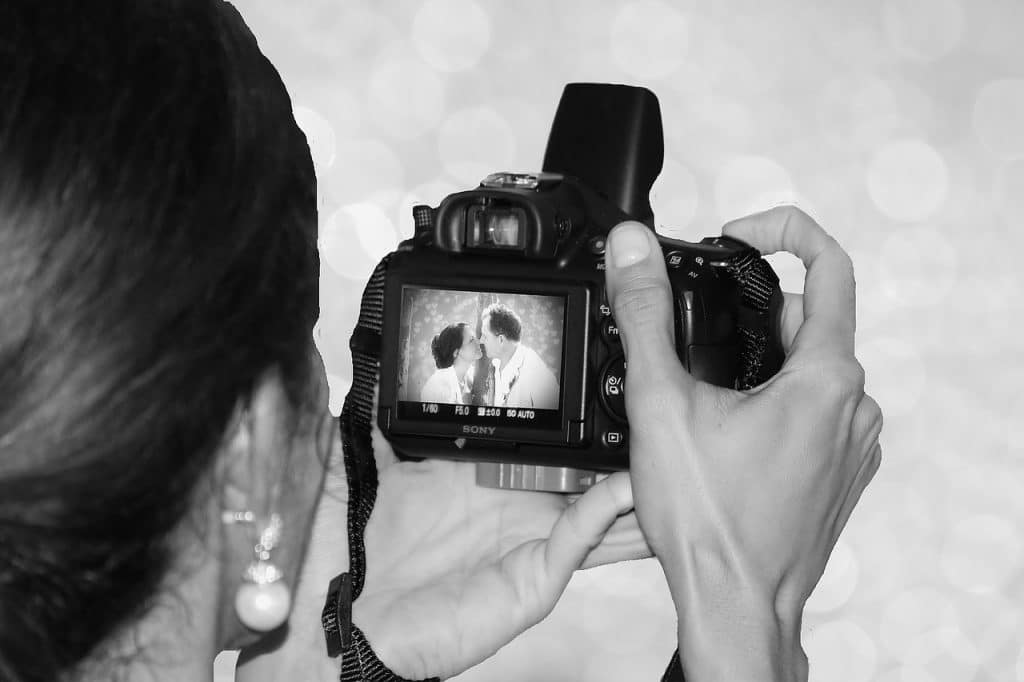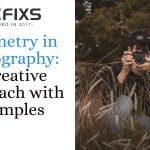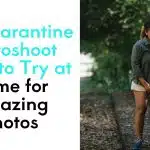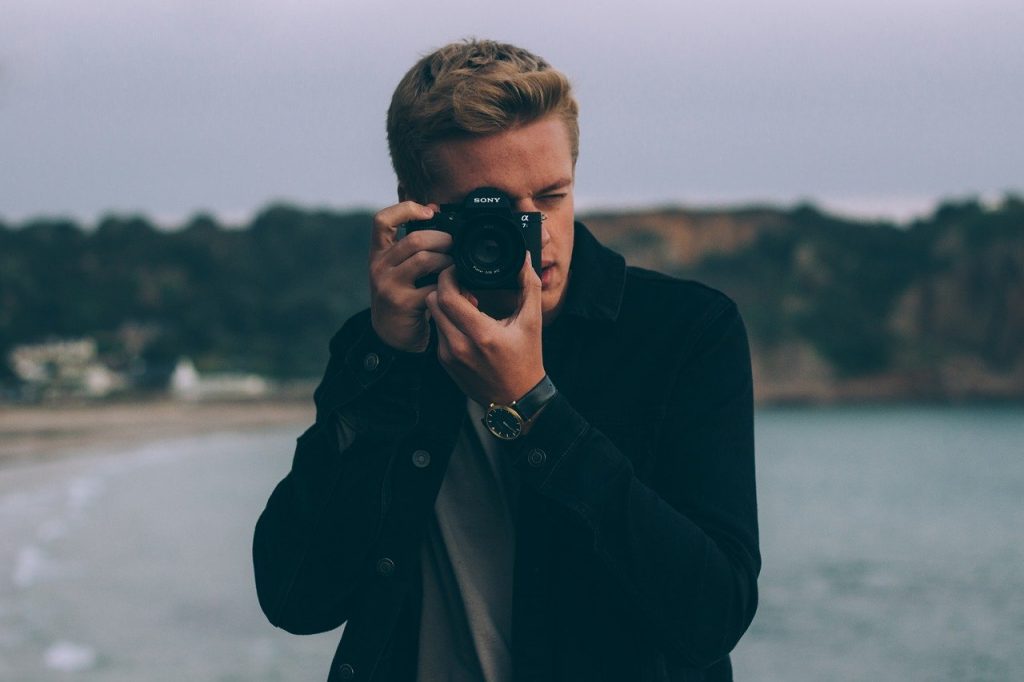When it comes to selecting the best cameras for wedding photography, you may have a lot of questions. Wedding photography is a high-pressure industry. Some photographers spend years honing their craft because weddings involve so many moving parts, such as portraits, action, and emotion.
This is why having the right camera body to support you during these long days of shooting is critical.
Every wedding photographer’s style is unique, and cameras are constantly evolving and becoming obsolete, but this article will go over some common things to look for when selecting a camera for wedding photography that are timeless and designed to fit your needs as well as your budget.
How do you pick the best wedding photography camera?
Here are the key features to look for when purchasing a wedding photography camera.

Sensor
When it comes to choosing a camera for wedding photography, wedding photographers all agree that this should be one of your top priorities. The sensor size determines image quality, so it is critical. As a result, full-frame sensors are typically preferred over crop sensor cameras. To determine if a camera is among the best, look at its design, megapixels, and sensor size.
Keep in mind that the larger the sensor, the more light the camera will be able to capture. Larger or full-frame sensors are therefore required for shooting inside dark churches or wedding venues. Smaller sensors, or crop sensors, on the other hand, are less expensive and come with more affordable zoom lenses.
Full-frame cameras, on the other hand, are the best for wedding photographers, despite their high price tags of $1,500 USD and higher.
However, you are not required to begin with a full-frame camera. Many wedding photographers swear by their crop sensors and the savings they provide. However, full-frame lenses will not work on a crop sensor camera and vice versa.
Extra Features
Depending on the camera body, the list of extra features could go on and on. Here are a few to think about: an extra SD card slot, 4k video, battery life, live view, full HD, and Wi-Fi. It’s even better if your camera has a 24-70mm f/2.8 lens, which is one of the most popular for wedding photography.
DSLR vs Mirrorless
You may have recently heard a lot of discussion about DSLR vs Mirrorless cameras. They both have positive and negative characteristics, so let’s go over them here.
DSLR Camera

DSLR cameras are used by the majority of wedding photographers who have been in the business for a long time. They use mirror technology, which means that light passes through your lens and reflects onto a prism, resulting in the image you see through your viewfinder. When you take a photograph, the mirror tilts up, and the light that passes through imprints an image on your sensor.
Pros:
- Longer battery life
- Easier to use the viewfinder in low-light situations
- Longer battery life
Cons:
- Heavy, large, and occasionally a bit of a workout to carry around all day
- The mirror makes a lot of noise when flipping down (not ideal for quiet ceremonies)
- Expensive to repair due to the technical mirror inside
Mirrorless Camera

There is no mirror inside a mirrorless camera, as the name implies. The light strikes the sensor directly, displaying a preview on the camera’s LCD screen. When comparing mirrorless cameras, keep these advantages and disadvantages in mind.
Pros:
- Silent
- Less expensive to repair when something breaks
- Excellent for wedding videography with phase detection
- Excellent for wedding videography with phase detection Smaller, lighter, and easier to transport on a 12-hour wedding day
Cons:
- Fewer lens options (improving but still slow to happen)
- Lower battery life due to the LCD screen continuously being illuminated
- Not the best when it comes to continuous autofocus
ISO Range
Typically, a professional wedding camera will have a high ISO range. Consider dimly lit reception halls and wedding chapels. Wedding photographers must be able to increase their ISO into the thousands while still achieving noise reduction. There is no reason for your image quality to suffer because DSLR cameras have greatly improved in low-light situations in recent years. Consider upgrading if your current DSLR camera is 5 years old or older.
Resolution
Many inexperienced wedding photographers become enamored with the concept of megapixels. They are important, but not as important as the size of your camera’s sensor. If you frequently crop your images in post-production, the resolution will be more important to you. The more megapixels you have, the more flexibility you have to crop later. This will also play a role in low-light situations. In addition, the resolution is important when printing larger images, such as giant wall-sized canvases.
Auto Focus
Wedding photography cameras have improved their autofocus capabilities in recent years. A wedding photographer captures bouquets flying through the air, first dances, and rapidly moving glasses of champagne, which is why this is so important. Nothing is more heartbreaking than missing the final kiss of the wedding ceremony due to a blurry photograph.
As previously stated, the majority of a wedding day is spent in motion, so an accurate autofocus tracking system is essential when selecting the best cameras for wedding photography. Examine the camera’s technical specifications to see how well it focuses in low-light situations. In low light, autofocus with a range that starts at -3 EV will outperform autofocus with a range that starts at -2.
Ease of Use
Keep in mind that you will be holding your wedding photography cameras for extended periods of time. Following the bride and groom from the chapel to the reception and hotel. With this in mind, you should select a wedding photography camera that is lighter in weight and easier to hold.
Before you buy, go to a local retailer and hold and touch the camera you’re thinking about buying. How do you like the feel of the grip? Is it a good fit in your hand? Consider the hand and neck-straps you’ll be wearing. Consider a sturdier, heavier DSLR camera to keep up with your usage if you are a bit rough with your gear. Choose a mirrorless camera if you have back or neck problems.
Available Accessories
While looking for the best wedding cameras, consider the lenses you already own or want to own. You don’t want to choose the wrong wedding cameras to go with your collection of wedding lenses because a camera body is a significant investment.
Depending on your personal style, lenses are extremely personal. However, here are some of our top picks to go along with your wedding camera body. Consider these factors before purchasing a camera for wedding photography.
70-200mm f/2.8E FL ED VR Lens
50mm f/1.8G Lens
24-70mm f/2.8G IF-ED Lens
85mm f/1.8G Lens
Note: If you want to make some adjustments to the photo just let me know. I can do it for you at a very low cost. You can hire me to edit your photo.
What cameras do professional wedding photographers recommend?
Now that you know what qualities to look for, let’s look at wedding photography camera brands and what a professional wedding photographer uses.
Best Canon cameras for wedding photography
Canon 5D Mark IV

The Canon EOS 5D Mark IV is a wedding photographer’s dream camera. Because of its sensor resolution, WIFI, and lower price than some of its Nikon competitors, this could be the best camera for Canon shooters.
Because of its 30.4 Megapixel full-frame sensor, the image quality is incredible. Finally, the Mark IV has a Dual Pixel AF system that employs phase-detection when in live view mode.
This means it can focus on moving objects quickly and accurately. When it comes to a camera for wedding photography, the dynamic range and image stabilization are also huge advantages. If you’re in the market for a new camera, the Canon 5D Mark IV might be right for you.
Best features of Canon 5D Mark IV
- 61-Point Phase Detection Autofocus
- 7 FPS Continuous Shooting
- ISO range of 100 to 32000
- 30.4 Megapixel Full-Frame Sensor
- Battery Life of around 900 shots with viewfinder
Canon EOS 90D

The Canon EOS 90D is a crop-sensor DSLR with an impressive AF system that will assist you in avoiding blurry photos. It’s also an excellent wedding camera due to its large number of autofocusing points (5481 dual pixel CMOS AF points), which allows it to track your subjects quickly.
We also like how it has built-in wireless capabilities, which allow you to instantly upload your favorite photos to your phone and share them with the bride and groom at the party or with potential new clients on social media.
Best features of Canon EOS 6D:
4.5 FPS Continuous Shooting
Full-Frame 20.2 Megapixel Sensor
11 Point Auto Focus System
ISO Range 100 too 25600
Battery Life of around 900 shots with viewfinder
Canon 1Dx Mark II

Canon has once again maintained its strong following thanks to the incredible speed of this wedding camera’s sensor. The Canon 1Dx Mark II is built around autofocus and frame rates. Furthermore, it tops our list of wedding photography cameras due to its long battery life and sturdy construction.
Some refer to it as a “tank” because it has been in use for years and continues to be valuable in the wedding photography industry, but with this bulk comes a lot of weight and size.
It has a dual-processor dedicated to the AF system and incredible ISO capabilities. Finally, because of its fast 16 FPS shooting speed and access to a wide range of lenses, it’s an excellent camera for wedding photography.
Best features of Canon 1Dx Mark II
Built-in GPS
20 megapixels full-frame sensor
ISO 100-51200
16 FPS
Battery life around 1000 using viewfinder
Best Nikon cameras for wedding photography
Nikon d850

The Nikon d850 is not only a popular wedding photography camera but it is also regarded as the best camera for wedding shoots. Aside from its weight, we like the Nikon d850 for its full-frame ultra-fast AF system.
Furthermore, it is extremely quiet, which is very useful when filming ceremonies. Also, if you enjoy shooting video, this camera is the best bang for your buck because it captures HD video and high-resolution images. Take a closer look at this one if you want the best Nikon wedding camera.
Best features of Nikon d850
Silent shooting modes
Touch screen LCD screen
Phenomenal resolution
Cross-type full-frame/crop sensor
30FPS and high AF speeds
4k Video
Nikon d750
The Nikon d750 has been around for a while, but it is still regarded as one of the best cameras for wedding photography. You still get a lot for about half the price of the Nikon d850!
For one thing, it weighs much less than the Nikon d850 and comes with an LCD tilt screen for shooting those difficult-to-achieve angles. The full-frame 24.8 MP sensor is also a big seller. The everyday wedding photographer appreciates the dual SD card slots as well as the fact that it is affordable, durable, and versatile, with a price tag of around $1,500 USD.

Best features of Nikon d750
- Dual SD card slots
- Tilt LCD screen
- Full-frame 24.8 MP sensor
- Lighter weight compared to the Nikon d850
- Image stabilization with a wide range of lenses
Best Sony Camera for wedding photography
Sony a7 III
The Sony a7 III is widely regarded as the best camera for weddings from this manufacturer. It’s one of the best mirrorless cameras on the market, so it’s much lighter than its bulky DSLR counterparts.
Many Nikon and Canon fans have abandoned their brands in favor of Sony’s high ISO performance, an LCD touch screen, incredible phase detection, in-body image stabilization, 4K2 video, and long battery life.

Sony also has a very high continuous shooting frame rate. Finally, the Sony a7 III has a feature called Eye AF. This means it recognizes and continuously tracks your subject’s eye.
This incredible Sony technology makes it simple to keep your bride’s face in focus while she dances, walks down the aisle, and chases the flower girl. When it comes to mirrorless cameras, this is Sony’s top pick.
Best features of the Sony a7 III
- 5-axis in-body image stabilization
- full-frame mirrorless camera
- 24.2MP
- Sony Eye AF
- High ISO performance
- 10fps with continuous shooting
Best Fujifilm Camera for wedding photography
Fujifilm X-Pro2
If you’re new to wedding photography, the Fujifilm X-Pro2 is a great place to start. Beginners love it because of its low price tag of around $1,700 USD and the high quality it produces at this price point.
Keep in mind that it is not a full-frame camera, but it does have a wide ISO range and a stylish design. Wedding photographers appreciate its APS-C sensor and lightweight body for long wedding days. Make this one a must-have for your next wedding event.

Best features of Fujifilm X-Pro2 camera
- 24MP X-Trans CMOS III sensor (APS-C)
- 273 autofocus points (169 of which are phase-detect) with continuous shooting
- 2.36M-dot OLED/Optical hybrid viewfinder with pop-up picture-in-picture tab.
- ISO 200-12800
- 1/8000 sec maximum shutter speed
Canon vs Nikon – Which is better for wedding photography?
Nikon and Canon are both regarded as excellent brands by industry experts. Because of the large upfront investment in lenses and accessories that only work with one retailer, professional photographers typically stick with whichever one they start with. However, Nikon and Canon are both the best in terms of available and diverse lenses, as well as the best optics.
It’s also critical to have two cameras with you at weddings. A backup camera is ideally not required, but it is necessary for the event that your primary camera fails on such an important day.
According to some wedding photographers, Nikon is better in bright light situations and Canon is better in low light situations. However, with technology constantly evolving, we must agree that either brand works well for weddings.
Which camera is best for pre-wedding photography or engagement sessions?
Most wedding packages include an engagement shoot to get to know the couples before the wedding and give them a sense of how you work with them and the types of posing you will use on their wedding day.
Furthermore, many international couples travel to popular destinations such as Paris to have a “pre-wedding” shoot in which they wear their wedding attire but shoot in a beautiful location to show off the photos during their pre-wedding party or invitations.
If you’re wondering whether or not you need a different camera for these types of shoots, the answer is no. Any of the cameras listed above will be ideal for wedding and pre-wedding photography. Professional shooters do not downgrade their cameras for the engagement shoot, so they are all top market picks. So take the plunge and buy a camera that can be used for both.
Finally, keep in mind that your lens selection may be more important in your engagement session equipment list. Because of the beautiful bokeh and crisp looks, 50mm and 85mm lenses are commonly used for engagements. When selecting a lens, look for one with a starting aperture of f/2.8 or less.
Conclusion
So there you have it. Our comprehensive list of the best wedding photography cameras! We hope you are now better prepared to select the best camera for your wedding photos.
If you’re still perplexed, read this article to find out which lenses are best for weddings. Alternatively, look for books that contain wedding images as well as advice from wedding photography experts on how to pose and set up wedding portraits.
Note: If you want to make some adjustments to the photo just let me know. I can do it for you at a very low cost. You can hire me to edit your photo.
latest post
- What is Midjourney
 Discover the capabilities of Midjourney AI, learn how to effectively utilize the platform, and explore the advantages and disadvantages of the Midjourney AI image generator across its different pricing options.
Discover the capabilities of Midjourney AI, learn how to effectively utilize the platform, and explore the advantages and disadvantages of the Midjourney AI image generator across its different pricing options. - Brand identity elements
 In the vast marketing universe, imagery is pivotal in establishing and nurturing a brand’s identity. A brand’s visual choices are not merely aesthetic decisions but strategic moves that can significantly influence perception and performance. This Picfixs article explores the intricacies of selecting imagery that complements and enhances a brand’s essence, ensuring it resonates with the… Read more: Brand identity elements
In the vast marketing universe, imagery is pivotal in establishing and nurturing a brand’s identity. A brand’s visual choices are not merely aesthetic decisions but strategic moves that can significantly influence perception and performance. This Picfixs article explores the intricacies of selecting imagery that complements and enhances a brand’s essence, ensuring it resonates with the… Read more: Brand identity elements - 100 Best Mountain Captions and Mountain Quotes for Instagram
 Ready to scale new social media heights? Look no further than this treasure trove of 100 exhilarating captions and quotes, handpicked for your Instagram mountain posts!
Ready to scale new social media heights? Look no further than this treasure trove of 100 exhilarating captions and quotes, handpicked for your Instagram mountain posts! - Symmetry in Photography: A Creative Approach with Examples
 Delve into the enchanting realm of symmetry in photography as we showcase mesmerizing examples on our website. Experience the allure of perfectly mirrored images!
Delve into the enchanting realm of symmetry in photography as we showcase mesmerizing examples on our website. Experience the allure of perfectly mirrored images! - 11 Quarantine Photoshoot Ideas to Try at Home for Amazing Photos
 Looking for unique photoshoot ideas during quarantine? Explore the 11 creative suggestions that will help you capture unforgettable moments at home.
Looking for unique photoshoot ideas during quarantine? Explore the 11 creative suggestions that will help you capture unforgettable moments at home.


